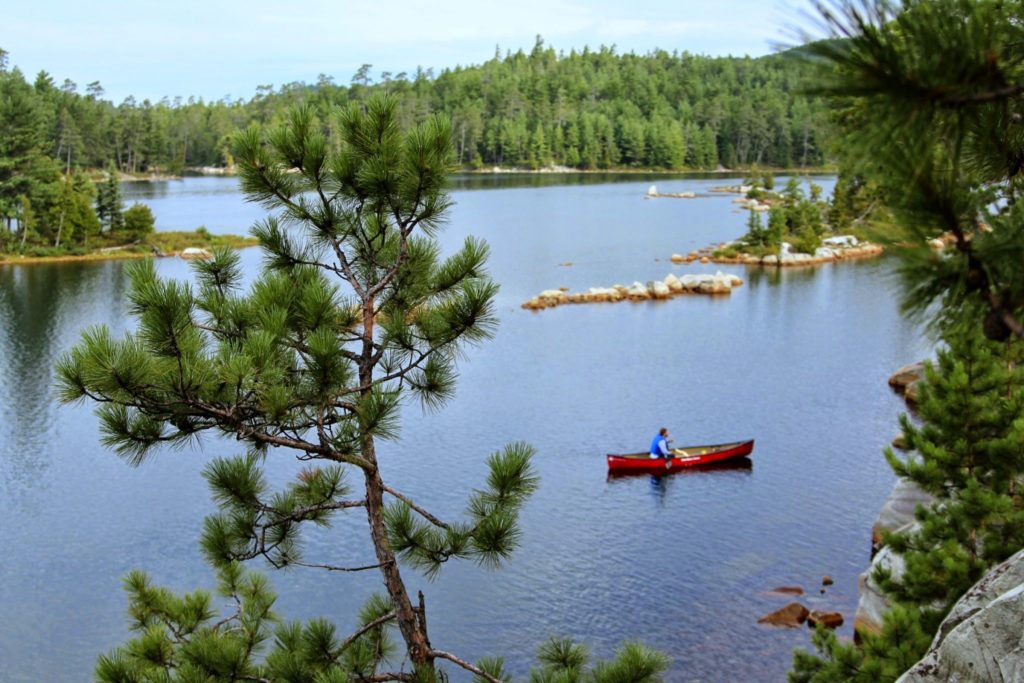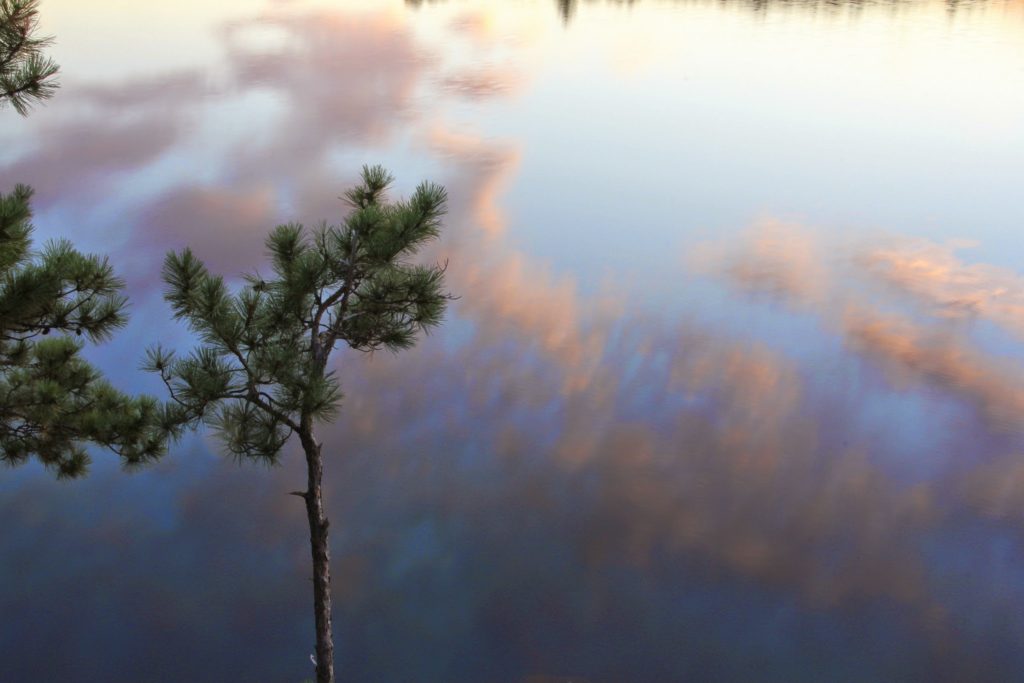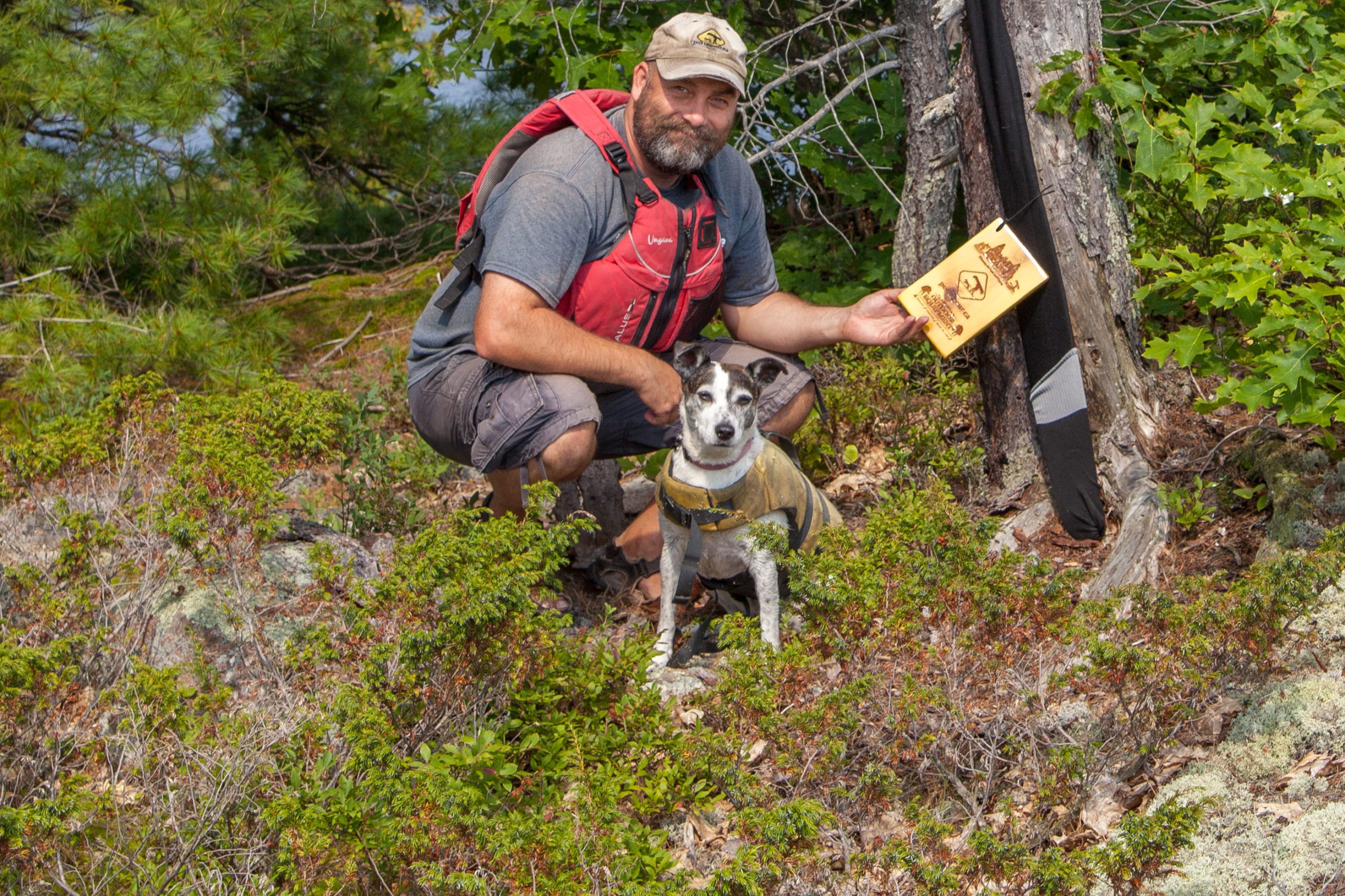Wandering Around Out There With A Canoe On My Head
Wandering Around Out There With A Canoe On My Head

Around some parts of the internet, every Wednesday for the past half year has been known as Save Wolf Lake Wednesday. The Friends of Temagami, for example dedicate their midweek posts on Twitter and Facebook to raise awareness in hopes of protecting this beautiful area. Last week I shared one of their pictures on Facebook, writing a little blurb, then just kept writing. When I ran out of space, I figured maybe it wasn’t the best medium for that, so I shortened it significantly, then re-wrote the long version here.
Wolf Lake by Rob Nelson http://vimeo.com/33890599
What’s Wolf Lake?
Wolf Lake is the main water body of the Wolf Lake Forest Reserve in the Southwestern part of the Temagami Region. It’s a beautiful gem of an area, with high rocky hills, clear mutli-coloured lakes, and of course contains ” the world’s largest contiguous stand of old-growth red pine” – some 300 years old and 15 stories high. (For a really crudely drawn map, click here. For best results, view the photos on Google Maps from the menu on the right of the map.) The forest reserve runs along the Chiniguchi River, a fantastic traditional canoe route used for thousands of years. Up there, they call them Nastawgan.
The Background (i.e. why people are mad)
Thirteen years ago, the area was promised to have its status as a Forest Reserve upgraded to a Provincial Park. What’s the difference? Well as a Reserve, companies can still perform mining research (“mineral exploration leases”), however the area cannot be opened for more destructive activities (“resource extraction activities”) such as full-on mining or commercial forestry. As a Park however, all the big industrial activity would not be allowed. (I love how we call what companies do to the land “activities”, like it’s akin to snowshoeing or scrap-booking.) Basically, when the surrounding Chiniguchi Waterway Provincial Park was created, Wolf Lake still had mining claims, and so was designated a Reserve. The bureaucratic necessity was to conclude once the existing claims in the area lapsed, then it was to merge into the Park. Quite suddenly, and I’m sure it was expected to be quietly, the status of Wolf Lake came under attack.
If the current MNR proposal is successful, not only is the expected promotion not going to happen, but Wolf Lake might actually be demoted to the status of “General Use” or “Enhanced Management Area”. This is significant because it opens the floodgates to mining, lumber, hydro-electric activity, and other unsavory corporate acts, based on which land designation the area receives.
Why it’s worth saving
First, it’s beautiful up there. It’s some of the best Great Canadian Shield territory. High vistas, hills that are both rolling and ragged, rocky shores, mineral rich waters with each body of water bright and clear and a different colour than the next. Next, it has some very ecologically delicate relics hundreds of years old – old growth pine trees. It would be a horrible shame for these trees to have survived hundreds of years only to be taken down because we need more end tables with weird Swedish names. Just as significant, the area has historical value. Not only was it part of ancient transportation routes used for thousands of years, but it also has a more modern but still lengthy tradition of canoeing and camping culture. I have no idea how all of this would translate into a dollar value, but it’s gotta be more than whatever “possible” mining revenue that would be generated.

What you can do
The easiest, quickest way you can help – right now – is to sign the petition here. Earthroots has set it up to straight to the premiere. No need to look up any addresses or buy stamps. Just add your name and hit “send”. Hopefully with enough sent, he’ll understand how much we all want this area saved, and other areas like it. Next, visit. Bring a friend.
These are all of our places, not just camping and canoeing enthusiasts, but definitely not exclusively for the use of corporations – contrary to their opinions. In fact, it’s the places we go that make us go camping and canoeing, creating the “enthusiast” part. We need to visit areas like Wolf Lake in order to protect it – responsibly of course. (I was trying to figure out how long it’s been since I’ve been there, and I started to feel bad because it’s been a few years.) When we go we spend a little money in the area, making the place more valuable to politicians (jobs, the economy). This adds real value to an area to decision makers. It also tells them that the area is important to us, and even more to the point, tells them we’ll notice when they try and mess it up.
Most importantly, when we go to places like Wolf Lake, we see how beautiful these places are and are reminded as to why these places are so important to protect. You might not care. You might have read somewhere that some mining company “infused money into the local economy”, and maybe you’re a little bothered by it, but not enough to do anything about it. When you go out and sit by the campfire and watch the sunset fall across the lake, or stand under an enormous 300 year old tree and wonder just how much it could tell you if it could, or paddle down turquoise water astounded at how far down you can see, or just simply breathe in, amazed at how fresh the air feels. I promise you, that if you went to Wolf Lake, you’d definitely want to protect it.
So I’m going to make it a point to canoe Wolf Lake this year. I’m going to immerse myself in the natural beauty, rent from a local outfitter, buy myself a locally made burger, come back home and tell my friends all about the experience, and how much I enjoyed it. Then maybe they’ll understand why it’s so important to save these natural places, want to visit, and want to save Wolf Lake.
For More Information, take a look at the following websites:

Session expired
Please log in again. The login page will open in a new tab. After logging in you can close it and return to this page.